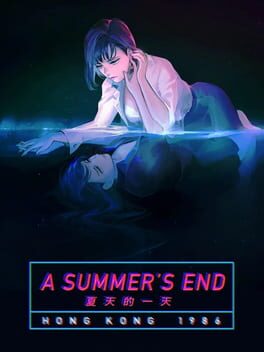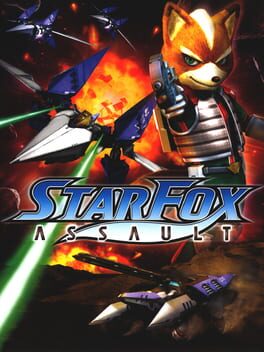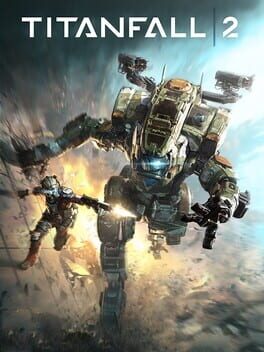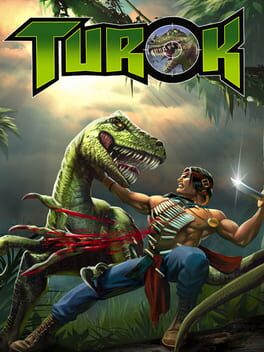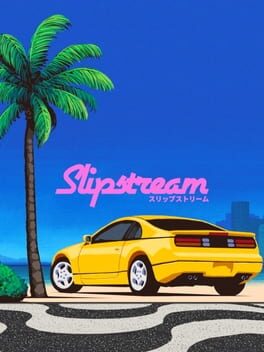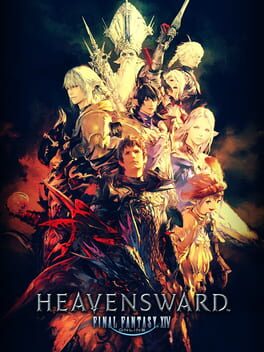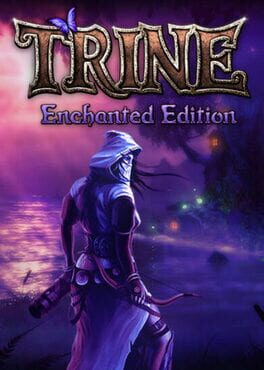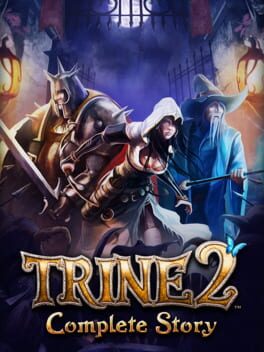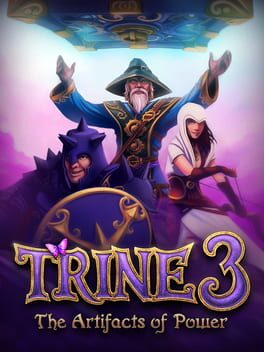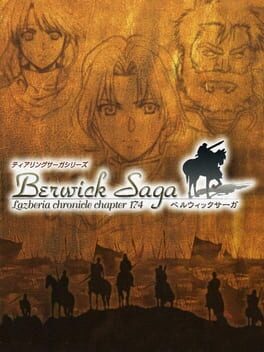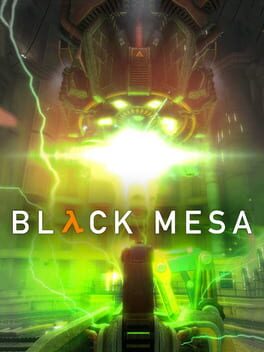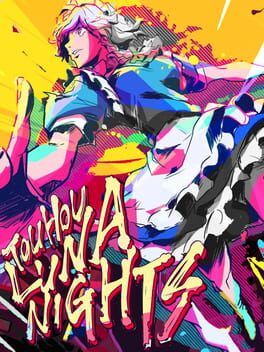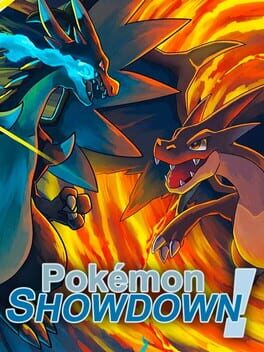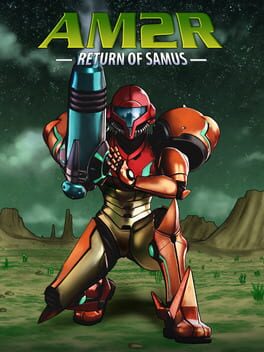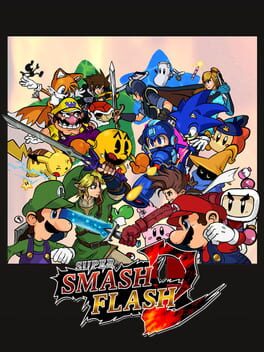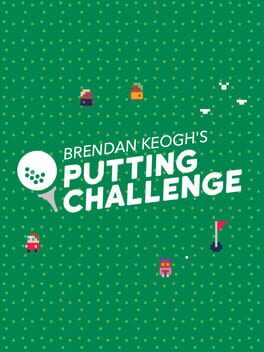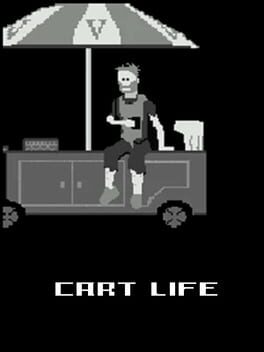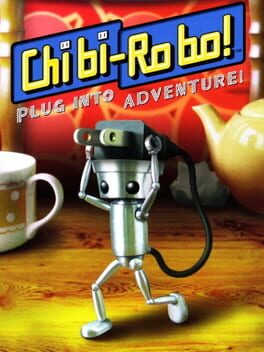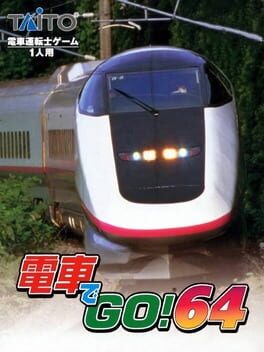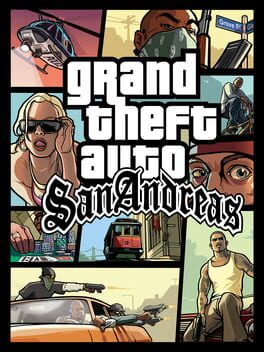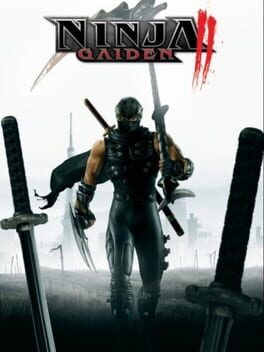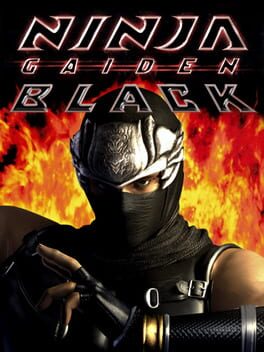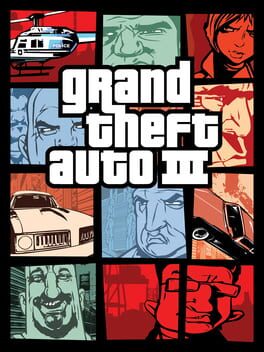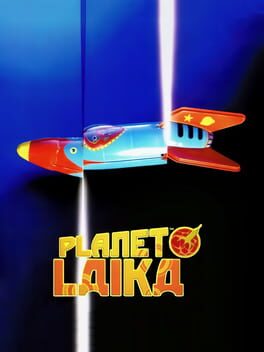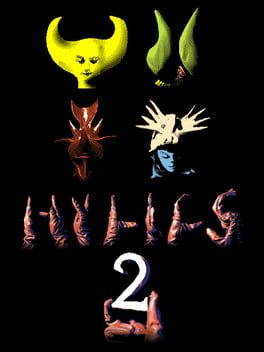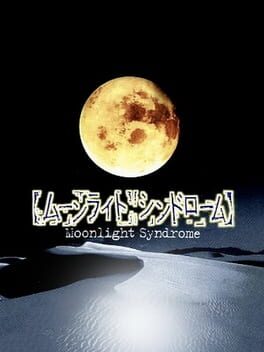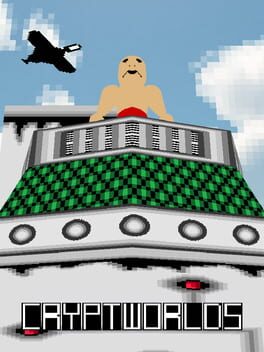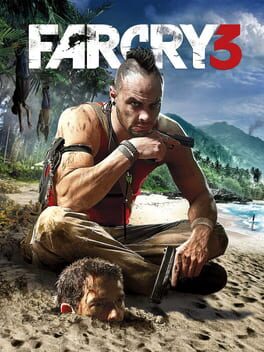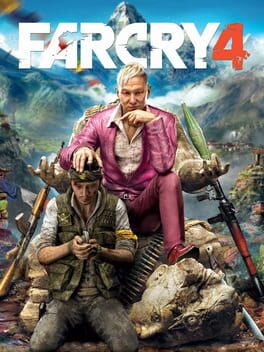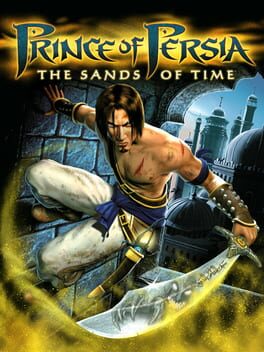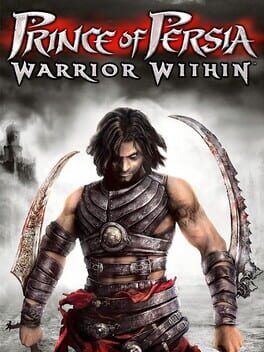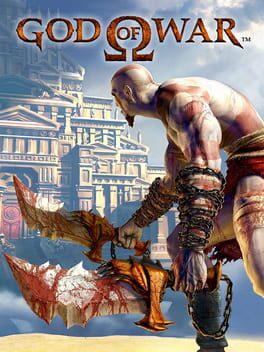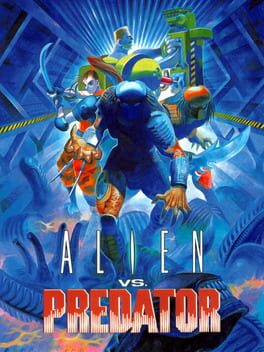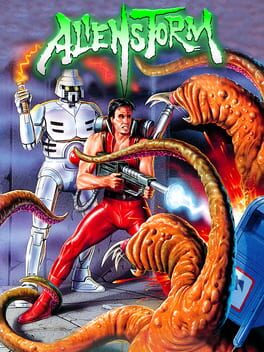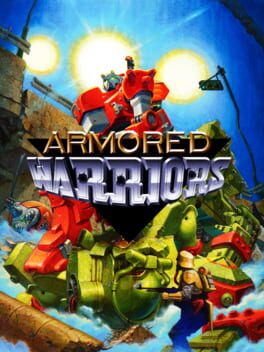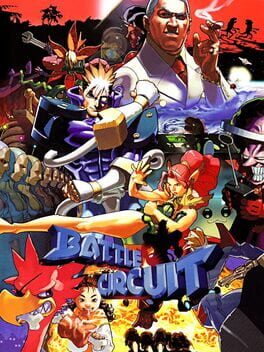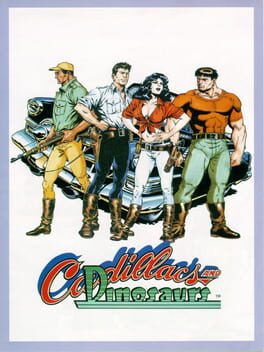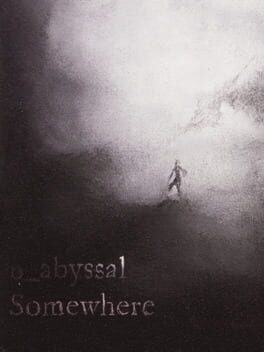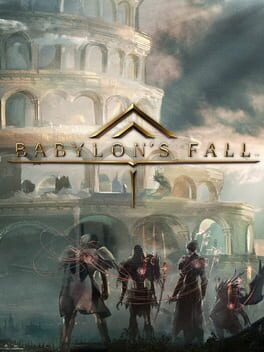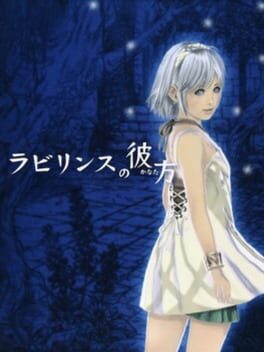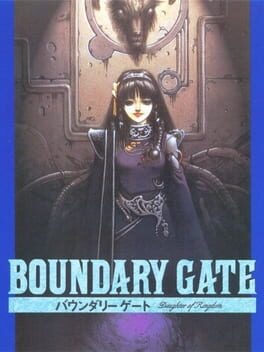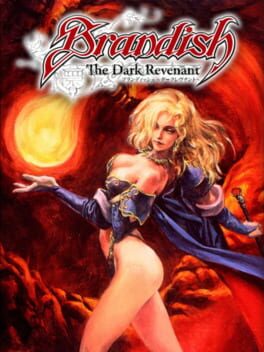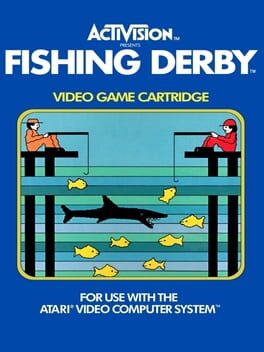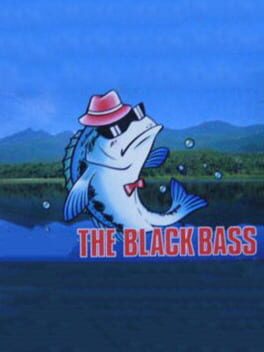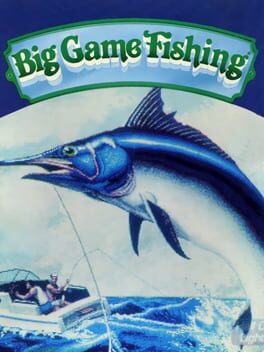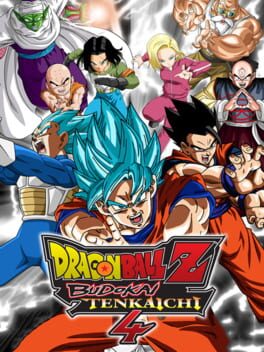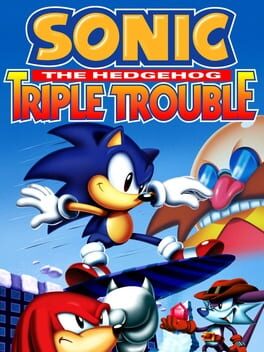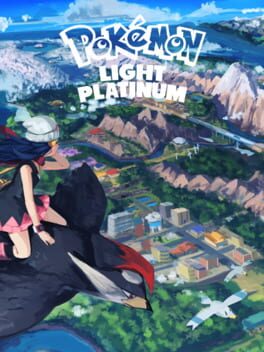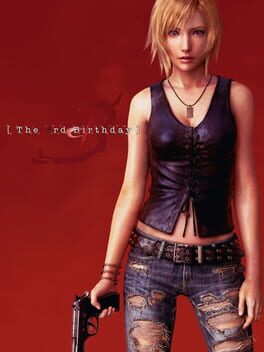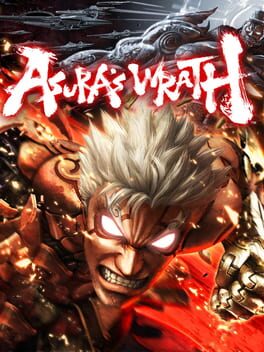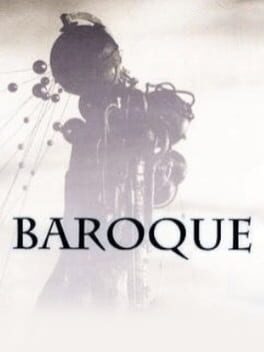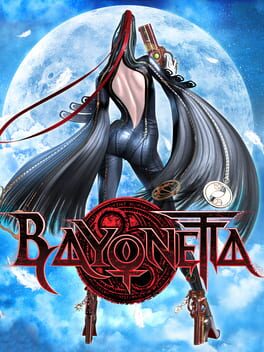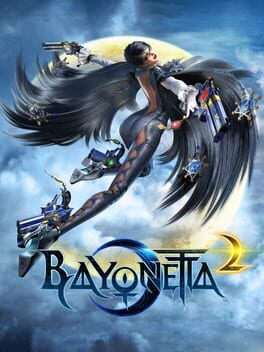2435 reviews liked by Ardwyw_mp3
Star Fox: Assault
2005
-jus super impressed by how totally sincere and genuine this takes itself it’s kind of insane tbh. like it’s all treated as this v serious and grave life or death space opera that just happens to have furries at the center of it. I fucking love when stuff that looks silly is free of pretense or irony like there’s just a part in this where fox breaks down over his dead father that just looks like him but w sunglasses. shit like that rocks
-shocked this runs and runs so well on my garbage laptop. anytime like smth gc and up runs well via emulation on my laptop it’s like wow I think it might break it but also that’s cool!! beautiful game like actually gorgeous,, some rlly cool frutiger aero type aesthetics here at times w the pretty skyboxes n clouds. last fight is visual chaos and so much to look at all at once v overwhelming but also it’s what i imagine when i see randoms pog out over the stupid dark matter shit in kirby lol.
-which yeah this has some big kirby air ride/f zero gx vibez. cool almost post apocalyptic or like pre apocalyptic but just barely cityscapes where everything looks weird and kind of futuristic and high tech but also works as a believable real city like there’s a dumb quippy moment where one of the characters says how his favorite coffee shop got blown up in one of the fights which yeah whatever cringe but it does a lot in making the world seem real and lived in. also like the f zero gamecube game this was like outsourced by nintendo to another company who seemingly made the best game in the series or in the very least reinvented a lot of stuff to make it more or less wholly diff from what came before.
-couldn’t help but pog out and compare this to the star wars prequels bc ofc. I fucking love those movies despite not giving a fuck about what came before or after, i find all of that to be kind of soulless cash grab sci fi action schlock. but those three movies are like so much more and rlly pushed the ideas of what a film like that could be back then and i think that’s rlly cool!! can’t help myself but to love how grandiose and romantic they are,, in my head they’re like what u imagine movies to be like if u hadn’t seen any other movies if that makes sense lmfao. like v traditionalist in its storytelling but when u break it down and view it from a visual standpoint and allow urself to get invested in the drama it becomes smth more. those movies r like paintings but not in a cringe every frame a painting xD way. anyhow like i said above i love stuff that’s so committed to its own vision and fictional world and doesn’t allow for itself to be ironic or insincere and both this and the prequels r like that to me. what came before it is dated boomer/gen x tier shit and what comes after it is nostalgia bait for those ppl but for this moment it’s smth rlly gorgeous and rlly genuine. star fox killing younglings or whatever the fuck who cares
-played the last three missions of this very stoned on my bathroom floor after being emo and i think that was the move,, fit the vibe of this perfectly kind of
-there’s a fucking lizard in this i loveeee lizards dude
-im a lute fangirl so yes ofc that’s why i played this through (haven’t watched his vid on it yet tho 😖)
-i just know there’s way too much yaoi about these ancient furry characters
-idk maybe the wiiu one is like secretly an underrated gem i could see that being the case
-shit had me feeling like these pics of anne hathaway playing ps2 :-)) https://x.com/mannfacts/status/1815475768568549755?s=46
-shocked this runs and runs so well on my garbage laptop. anytime like smth gc and up runs well via emulation on my laptop it’s like wow I think it might break it but also that’s cool!! beautiful game like actually gorgeous,, some rlly cool frutiger aero type aesthetics here at times w the pretty skyboxes n clouds. last fight is visual chaos and so much to look at all at once v overwhelming but also it’s what i imagine when i see randoms pog out over the stupid dark matter shit in kirby lol.
-which yeah this has some big kirby air ride/f zero gx vibez. cool almost post apocalyptic or like pre apocalyptic but just barely cityscapes where everything looks weird and kind of futuristic and high tech but also works as a believable real city like there’s a dumb quippy moment where one of the characters says how his favorite coffee shop got blown up in one of the fights which yeah whatever cringe but it does a lot in making the world seem real and lived in. also like the f zero gamecube game this was like outsourced by nintendo to another company who seemingly made the best game in the series or in the very least reinvented a lot of stuff to make it more or less wholly diff from what came before.
-couldn’t help but pog out and compare this to the star wars prequels bc ofc. I fucking love those movies despite not giving a fuck about what came before or after, i find all of that to be kind of soulless cash grab sci fi action schlock. but those three movies are like so much more and rlly pushed the ideas of what a film like that could be back then and i think that’s rlly cool!! can’t help myself but to love how grandiose and romantic they are,, in my head they’re like what u imagine movies to be like if u hadn’t seen any other movies if that makes sense lmfao. like v traditionalist in its storytelling but when u break it down and view it from a visual standpoint and allow urself to get invested in the drama it becomes smth more. those movies r like paintings but not in a cringe every frame a painting xD way. anyhow like i said above i love stuff that’s so committed to its own vision and fictional world and doesn’t allow for itself to be ironic or insincere and both this and the prequels r like that to me. what came before it is dated boomer/gen x tier shit and what comes after it is nostalgia bait for those ppl but for this moment it’s smth rlly gorgeous and rlly genuine. star fox killing younglings or whatever the fuck who cares
-played the last three missions of this very stoned on my bathroom floor after being emo and i think that was the move,, fit the vibe of this perfectly kind of
-there’s a fucking lizard in this i loveeee lizards dude
-im a lute fangirl so yes ofc that’s why i played this through (haven’t watched his vid on it yet tho 😖)
-i just know there’s way too much yaoi about these ancient furry characters
-idk maybe the wiiu one is like secretly an underrated gem i could see that being the case
-shit had me feeling like these pics of anne hathaway playing ps2 :-)) https://x.com/mannfacts/status/1815475768568549755?s=46
Titanfall 2
2016
hoje eu me impressiono menos com os Grandes Feitos do Level Design e a sagacidade dos momentinhos e ideias sacadinhas e aprecio titanfall 2 como um presente mais pessoal pra mim mesmo, como um pós-pós-call-of-duty (que alcançou o pós-call-of-duty em 2010) que flerta com ideias que cod sugeria e vai muito mais a fundo em ideias que o eu que gostava de cod imaginaria nos meus períodos pré-sono. acredito que titanfall 2 foi um jogo Feito Para Mim vislumbrando um eu que não está mais aqui, mas com o qual eu ainda dividiria um cafezinho, se ele aceitasse deixar a cerveja pra lá.
Turok
2015
Turok is a decent FPS with a novel setting and satisfying enough gunplay held back primarily by its mind-numbing winding and repetitive level designs. Neat for flexing the newly released N64's capabilities in a game comparable to Quake, but truthfully this is little more than one of many competent shooters of the era. You could probably force a narrative of Turok bringing back the exploratory elements of the dungeon crawling origins of the first person shooter or taking influence from Metroid through its larger and less focused maps which require constant backtracking, but I don't think it's much more sophisticated than keycard hunting with some first person platforming sprinkled in. The jumping challenges only made me a little angry, which is a compliment given how little patience I have for hopping across platforms in first person.
For their part, Nightdive did good work. Just about anything would be excellent compared to the dogshit performance of the N64 version and the missing features of the original PC port, but this is still good work only really held back by a 60 fps cap.
For their part, Nightdive did good work. Just about anything would be excellent compared to the dogshit performance of the N64 version and the missing features of the original PC port, but this is still good work only really held back by a 60 fps cap.
Slipstream
2018
Existe um jogo de corrida pra aquecer cada coração, pela extensão de detalhes e pequenas recompensas que (importante) não podemos praticar na vida real. Jogos mais antigos, especialmente para arcade, tinham uma disposição muito forte de te “conceder” uma vitória através de uma série de execuções bem feitas — mais do que uma consistência geral de condução do carro, estratégia e manutenção por um longo tempo de uma alta velocidade.
É uma abordagem que permite que você ganhe uma corrida após uma largada muito ruim ou perca uma corrida praticamente do nada, mesmo tendo liderado todo o percurso, se capotar nos segundos finais. Quando você abre Slipstream e é ensinado sobre as duas bases de sua fundação — drifting e slipstreaming —, tem uma dica de como o jogo vai se comportar. Mais do que a estética, mais do que a variedade de filtros de imagem disponíveis (pixel, NTSC, CRT), mais do que as inúmeras referências a Sonic e jogos de corrida antigos — o que define Slipstream é seguir um carro em uma reta para ultrapassá-lo na curva e procurar outro carro para repetir o processo, várias vezes, até ganhar.
O que há de comum entre os vários modos de jogo é que você é colocado quase em uma linha paralela dos seus competidores ou dos outros carros na pista (no modo Arcade, só um dos carros é seu competidor a cada pista; os outros são só carros que estão casualmente ali infernizando sua vida. Inclusive, pau no cu do sedan marrom). Você tem em suas mãos as ferramentas para ganhar velocidade e mantê-la, sendo constantemente desafiado por curvas fechadas, curvas longas, curvas fechadas e longas e — principalmente — outros carros. Mas esses carros, mesmo que sejam seus competidores, normalmente se apresentam como obstáculos que estão tentando ser mais rápidos que você, não exatamente te manter atrás deles. Então eles nunca vão te fechar de propósito, procurar uma rota por dentro de uma curva, esperar você errar pra te aplicar um X.
De modo que as corridas são, em Slipstream, muito mais sobre a sua capacidade de acertar certos movimentos do que fazer os competidores errarem. Da mesma forma, uma vitória é mais uma vitória sua sobre o conjunto de mecânicas do que sobre os competidores. Por isso é bastante gostoso, bastante gratificante se colocar atrás de um carro por tempo suficiente para ativar o “modo” slipstream, que é uma explosão de aceleração derivada de você pegar carona na cauda de ar de outro carro, e depois ultrapassá-lo com a velocidade que ele mesmo te deu. É um movimento arriscado e, no mais das vezes e pelo menos no começo, você vai bater no carro à sua frente. Mas é disso que se trata.
Slipstream não é, então, um jogo de corrida acirrada, em que você dá e leva muitas ultrapassagens e está em contato direto com outros carros constantemente em disputa de posição. Esse tipo de corrida você atribuiria a Mario Kart, a Formula One Grand Prix, aos Need for Speed depois do Underground. Mesmo no seu modo Grand Prix, que tem corridas tradicionais com voltas e colocação, sua performance depende muito mais de como você lida com a pista e com os obstáculos (mesmo que eles sejam, eventualmente, outros carros) do que de como você lida com os outros competidores.
Correr contra o tempo para acumular pontuação e chegar ao final no modo Arcade ou contra outros carros para chegar ao primeiro lugar no modo Grand Prix, em não sendo experiências tão absolutamente diferentes assim, exacerbam uma característica curiosa: Slipstream é um jogo bastante solitário. Seus rivais do primeiro modo até falam com você, mas não se comportam de maneira relativa a você e, principalmente, te largam depois da corrida. Soa como uma coisa casual, meio promíscua até, sem rivalidades discerníveis entre carros ou personagens. Você usa os carros à sua frente, retardatários, competidores diretos ou só carros que parecem estar só viajando, para ganhar velocidade. E ganhar é um produto quase natural de uma execução bem feita de drifts, de não perder velocidade, de saber onde estar a cada momento para tirar o melhor da pista.
Então só sobra você com o carro de que você gosta, nas pistas de que você gosta. É nessa parte que a música pesa, os cenários pesam, os filtros de TV antiga pesam. Eles evocam jogos do passado e uma estética geral, mas essa só contribui para um espírito que já está lá mecanicamente. Por isso, seria errôneo configurar esse como um jogo retrô. O aspecto retrô, ao contrário, se coloca a serviço de outro sentimento geral além da nostalgia para quem conhece os jogos que influenciaram Slipstream. Existe um sentimento pervasivo muito forte de fortuidade solitária nas corridas, que tira um pouco do aspecto estritamente competitivo de Slipstream como jogo de corrida, mas reforça o aspecto estritamente pessoal de Slipstream como jogo de carrinho.
É uma abordagem que permite que você ganhe uma corrida após uma largada muito ruim ou perca uma corrida praticamente do nada, mesmo tendo liderado todo o percurso, se capotar nos segundos finais. Quando você abre Slipstream e é ensinado sobre as duas bases de sua fundação — drifting e slipstreaming —, tem uma dica de como o jogo vai se comportar. Mais do que a estética, mais do que a variedade de filtros de imagem disponíveis (pixel, NTSC, CRT), mais do que as inúmeras referências a Sonic e jogos de corrida antigos — o que define Slipstream é seguir um carro em uma reta para ultrapassá-lo na curva e procurar outro carro para repetir o processo, várias vezes, até ganhar.
O que há de comum entre os vários modos de jogo é que você é colocado quase em uma linha paralela dos seus competidores ou dos outros carros na pista (no modo Arcade, só um dos carros é seu competidor a cada pista; os outros são só carros que estão casualmente ali infernizando sua vida. Inclusive, pau no cu do sedan marrom). Você tem em suas mãos as ferramentas para ganhar velocidade e mantê-la, sendo constantemente desafiado por curvas fechadas, curvas longas, curvas fechadas e longas e — principalmente — outros carros. Mas esses carros, mesmo que sejam seus competidores, normalmente se apresentam como obstáculos que estão tentando ser mais rápidos que você, não exatamente te manter atrás deles. Então eles nunca vão te fechar de propósito, procurar uma rota por dentro de uma curva, esperar você errar pra te aplicar um X.
De modo que as corridas são, em Slipstream, muito mais sobre a sua capacidade de acertar certos movimentos do que fazer os competidores errarem. Da mesma forma, uma vitória é mais uma vitória sua sobre o conjunto de mecânicas do que sobre os competidores. Por isso é bastante gostoso, bastante gratificante se colocar atrás de um carro por tempo suficiente para ativar o “modo” slipstream, que é uma explosão de aceleração derivada de você pegar carona na cauda de ar de outro carro, e depois ultrapassá-lo com a velocidade que ele mesmo te deu. É um movimento arriscado e, no mais das vezes e pelo menos no começo, você vai bater no carro à sua frente. Mas é disso que se trata.
Slipstream não é, então, um jogo de corrida acirrada, em que você dá e leva muitas ultrapassagens e está em contato direto com outros carros constantemente em disputa de posição. Esse tipo de corrida você atribuiria a Mario Kart, a Formula One Grand Prix, aos Need for Speed depois do Underground. Mesmo no seu modo Grand Prix, que tem corridas tradicionais com voltas e colocação, sua performance depende muito mais de como você lida com a pista e com os obstáculos (mesmo que eles sejam, eventualmente, outros carros) do que de como você lida com os outros competidores.
Correr contra o tempo para acumular pontuação e chegar ao final no modo Arcade ou contra outros carros para chegar ao primeiro lugar no modo Grand Prix, em não sendo experiências tão absolutamente diferentes assim, exacerbam uma característica curiosa: Slipstream é um jogo bastante solitário. Seus rivais do primeiro modo até falam com você, mas não se comportam de maneira relativa a você e, principalmente, te largam depois da corrida. Soa como uma coisa casual, meio promíscua até, sem rivalidades discerníveis entre carros ou personagens. Você usa os carros à sua frente, retardatários, competidores diretos ou só carros que parecem estar só viajando, para ganhar velocidade. E ganhar é um produto quase natural de uma execução bem feita de drifts, de não perder velocidade, de saber onde estar a cada momento para tirar o melhor da pista.
Então só sobra você com o carro de que você gosta, nas pistas de que você gosta. É nessa parte que a música pesa, os cenários pesam, os filtros de TV antiga pesam. Eles evocam jogos do passado e uma estética geral, mas essa só contribui para um espírito que já está lá mecanicamente. Por isso, seria errôneo configurar esse como um jogo retrô. O aspecto retrô, ao contrário, se coloca a serviço de outro sentimento geral além da nostalgia para quem conhece os jogos que influenciaram Slipstream. Existe um sentimento pervasivo muito forte de fortuidade solitária nas corridas, que tira um pouco do aspecto estritamente competitivo de Slipstream como jogo de corrida, mas reforça o aspecto estritamente pessoal de Slipstream como jogo de carrinho.
The Trine games are among my favorite indie games; I find them very unique and charming. The first one is no exception. It is deeply charming and features an amalgam of interesting ideas, bringing a fresh experience to the platformer genre at the time.
In Trine you control three characters: a Wizard, a Knight, and a Thief, each with their own perks and abilities, making gameplay diverse and complex. The Wizard can create objects like boxes and planks to solve puzzles and reach new areas. The Knight can fight enemies with his sword and shield, and also use his strength to move heavy objects and break barriers. The Thief is agile and can shoot arrows and use a grappling hook to swing across gaps and reach high places. The unique abilities of each character requires you to think creatively and use teamwork to overcome obstacles.
The overall gameplay is about switching between these three characters to navigate through beautifully crafted levels. You must solve physics-based puzzles, engage in combat, and explore to collect items and secrets. The game's mechanics encourage experimentation, as each character's abilities can be combined in various ways to progress through the levels.
The story follows the unlikely trio as they are bound together by a magical artifact called the Trine. They must work together to save their kingdom from an evil threat. While the narrative is simple, it is presented in a fairy tale-like manner, with a whimsical tone that enhances the game's charm.
The atmosphere is great and brings a magical, fairy-tale world to life. The levels are beautifully designed, with lush forests, ancient ruins, and mystical caves. The detailed backgrounds and vibrant colors create a visually stunning experience that feels like stepping into a storybook.
The soundtrack is mesmerizing and feels perfectly suited to the game's enchanting world. The music is composed of soft, melodic tunes that enhance the magical atmosphere and make the exploration even more immersive. Each track complements the scenery and action, adding emotional depth to the experience.
I love Trine for its unique blend of platforming, puzzle-solving, and enchanting atmosphere. It stands out among indie games for its originality and charm. The combination of diverse characters, a captivating world, and a mesmerizing soundtrack makes it a memorable experience. Trine is a testament to the creativity and passion that indie developers bring to the gaming industry, and it remains a beloved title for its magical and captivating gameplay.
In Trine you control three characters: a Wizard, a Knight, and a Thief, each with their own perks and abilities, making gameplay diverse and complex. The Wizard can create objects like boxes and planks to solve puzzles and reach new areas. The Knight can fight enemies with his sword and shield, and also use his strength to move heavy objects and break barriers. The Thief is agile and can shoot arrows and use a grappling hook to swing across gaps and reach high places. The unique abilities of each character requires you to think creatively and use teamwork to overcome obstacles.
The overall gameplay is about switching between these three characters to navigate through beautifully crafted levels. You must solve physics-based puzzles, engage in combat, and explore to collect items and secrets. The game's mechanics encourage experimentation, as each character's abilities can be combined in various ways to progress through the levels.
The story follows the unlikely trio as they are bound together by a magical artifact called the Trine. They must work together to save their kingdom from an evil threat. While the narrative is simple, it is presented in a fairy tale-like manner, with a whimsical tone that enhances the game's charm.
The atmosphere is great and brings a magical, fairy-tale world to life. The levels are beautifully designed, with lush forests, ancient ruins, and mystical caves. The detailed backgrounds and vibrant colors create a visually stunning experience that feels like stepping into a storybook.
The soundtrack is mesmerizing and feels perfectly suited to the game's enchanting world. The music is composed of soft, melodic tunes that enhance the magical atmosphere and make the exploration even more immersive. Each track complements the scenery and action, adding emotional depth to the experience.
I love Trine for its unique blend of platforming, puzzle-solving, and enchanting atmosphere. It stands out among indie games for its originality and charm. The combination of diverse characters, a captivating world, and a mesmerizing soundtrack makes it a memorable experience. Trine is a testament to the creativity and passion that indie developers bring to the gaming industry, and it remains a beloved title for its magical and captivating gameplay.
Trine 2 not only continues the enchanting journey of its predecessor but also expands and enhances the experience in many delightful ways. Maintaining the series' signature charm, this sequel introduces several exciting features that elevate the gameplay to new heights.
Returning to the adventure are Amadeus the Wizard, Pontius the Knight, and Zoya the Thief, each bringing new perks and abilities to the table. Amadeus can now conjure more types of objects, such as planks and floating platforms; Pontius gains combat enhancements like a powerful charge attack and the ability to reflect projectiles with his shield and Zoya enhances her agility with multi-arrow shots and a more versatile grappling hook, which allows her to traverse the environment with greater ease and precision.
The narrative in Trine 2 continues the fairy tale-like storytelling of the first game. Amadeus, Pontius, and Zoya are called upon once again to save their kingdom from a new magical threat.
The game's visuals have been significantly upgraded. The detailed backgrounds, enhanced lighting, and smooth animations create an immersive and breathtaking world that feels alive and full of wonder.
The soundtrack of Trine 2 is equally mesmerizing, perfectly complementing the game's enchanting world. Each track is carefully crafted to match the mood and setting of the scenes, adding emotional depth to the experience.
Achieving the platinum trophy in Trine 2 was no joke. The trophies themselves are a mix of progression-based, collectible-based, and skill-based challenges.
-Complete every level on hard using hardcore mode: This trophy requires finishing the game on the hardest difficulty setting without using any checkpoints. In hardcore mode, if a character dies, they remain dead until the end of the level, adding a significant level of difficulty and requiring careful planning and precise execution.
-Finish a level without taking damage: This trophy is a testament to a player's mastery of the game's mechanics. It requires a thorough understanding of each level's layout and the ability to flawlessly navigate through obstacles and combat without taking any hits.
-Collect all experience pickups in the game: There are a total of 400 experience pickups scattered throughout the game. Finding and collecting all of these takes some time but its a fun process.
Trine 2 excels by taking the foundation laid by the first game and building upon it with new abilities, more complex puzzles, and stunning visuals. The enhancements in character abilities, level design, and overall presentation make it a standout title that offers a rich and captivating experience.
Choosing a favorite between Trine 1 and Trine 2 is tough, as both games offer unique and magical experiences. Trine 2 distinguishes itself with its improvements and added features, making it a remarkable sequel that stands on its own merits. This game is a shining example of how to evolve a series, delivering an enchanting and engaging adventure that continues to captivate.
Returning to the adventure are Amadeus the Wizard, Pontius the Knight, and Zoya the Thief, each bringing new perks and abilities to the table. Amadeus can now conjure more types of objects, such as planks and floating platforms; Pontius gains combat enhancements like a powerful charge attack and the ability to reflect projectiles with his shield and Zoya enhances her agility with multi-arrow shots and a more versatile grappling hook, which allows her to traverse the environment with greater ease and precision.
The narrative in Trine 2 continues the fairy tale-like storytelling of the first game. Amadeus, Pontius, and Zoya are called upon once again to save their kingdom from a new magical threat.
The game's visuals have been significantly upgraded. The detailed backgrounds, enhanced lighting, and smooth animations create an immersive and breathtaking world that feels alive and full of wonder.
The soundtrack of Trine 2 is equally mesmerizing, perfectly complementing the game's enchanting world. Each track is carefully crafted to match the mood and setting of the scenes, adding emotional depth to the experience.
Achieving the platinum trophy in Trine 2 was no joke. The trophies themselves are a mix of progression-based, collectible-based, and skill-based challenges.
-Complete every level on hard using hardcore mode: This trophy requires finishing the game on the hardest difficulty setting without using any checkpoints. In hardcore mode, if a character dies, they remain dead until the end of the level, adding a significant level of difficulty and requiring careful planning and precise execution.
-Finish a level without taking damage: This trophy is a testament to a player's mastery of the game's mechanics. It requires a thorough understanding of each level's layout and the ability to flawlessly navigate through obstacles and combat without taking any hits.
-Collect all experience pickups in the game: There are a total of 400 experience pickups scattered throughout the game. Finding and collecting all of these takes some time but its a fun process.
Trine 2 excels by taking the foundation laid by the first game and building upon it with new abilities, more complex puzzles, and stunning visuals. The enhancements in character abilities, level design, and overall presentation make it a standout title that offers a rich and captivating experience.
Choosing a favorite between Trine 1 and Trine 2 is tough, as both games offer unique and magical experiences. Trine 2 distinguishes itself with its improvements and added features, making it a remarkable sequel that stands on its own merits. This game is a shining example of how to evolve a series, delivering an enchanting and engaging adventure that continues to captivate.
Trine 3: The Artifacts of Power is the most unique entry in the Trine series, taking a bold step in a new direction with mixed results. While it introduced several innovative ideas, it ultimately fell short of the high standards set by its 2 predecessors.
The story of Trine 3 follows the continuing adventures of Amadeus, Pontius, and Zoya as they seek to repair the Trine, an artifact that binds their fates together. The characters remain charming and well-developed, but the story’s abrupt ending is a significant letdown.
• What Trine 3 Does Right:
-Gorgeous Graphics: One of the standout features of Trine 3 is its stunning visual presentation. The game’s graphics are truly breathtaking, with vibrant, detailed environments that bring the magical world to life. Each level is a visual treat, showcasing the developers’ talent for creating beautiful landscapes.
-Innovative 3D Gameplay: Trine 3 distinguishes itself from earlier entries by transitioning from 2D to 3D gameplay. This shift allows for more dynamic exploration and puzzle-solving, providing a fresh experience. The integration of 3D environments adds a new layer of complexity to the puzzles, making use of depth and spatial awareness.
-Charming Characters: The game continues to feature the beloved trio of Amadeus the Wizard, Pontius the Knight, and Zoya the Thief. Their unique abilities and charming personalities remain a highlight, adding humor and variety to the gameplay.
-Decent Gameplay: The core mechanics of switching between characters to utilize their distinct abilities for solving puzzles and combat are still present. The gameplay is decent, retaining the charm and creativity that fans of the series appreciate.
• What Trine 3 Does Wrong:
-Short Length and Incomplete Story: One of the biggest criticisms of Trine 3 is its short length and incomplete story. The game feels unfinished, with a narrative that abruptly ends. This is largely due to budget constraints that forced the developers to cut content, resulting in a fragmented story.
-Lack of Depth in 3D Implementation: While the transition to 3D was ambitious, the execution wasn’t perfect. The 3D gameplay can feel awkward and underdeveloped at times, with some puzzles and platforming sections not fully taking advantage of the new dimension. This can lead to frustration and a sense that the game is not as polished as its predecessors.
-Limited Content: Trine 3 suffers from a lack of content compared to earlier games in the series. The levels are fewer and shorter, and there is less incentive for replayability. The game’s overall brevity leaves you wanting more, especially given the high expectations set by the previous titles.
-The lack of Co-op
Trine 3: The Artifacts of Power is an ambitious entry that tried to innovate and take the series in a new direction. While it succeeds in delivering stunning visuals and maintaining the charm of its characters, it falls short in terms of story and content. The shift to 3D gameplay, while unique, could have been better executed. Despite its flaws, Trine 3 is still an enjoyable experience, especially for fans of the series, but it leaves one wondering what could have been if the game had more time and resources to fully realize its potential.
The story of Trine 3 follows the continuing adventures of Amadeus, Pontius, and Zoya as they seek to repair the Trine, an artifact that binds their fates together. The characters remain charming and well-developed, but the story’s abrupt ending is a significant letdown.
• What Trine 3 Does Right:
-Gorgeous Graphics: One of the standout features of Trine 3 is its stunning visual presentation. The game’s graphics are truly breathtaking, with vibrant, detailed environments that bring the magical world to life. Each level is a visual treat, showcasing the developers’ talent for creating beautiful landscapes.
-Innovative 3D Gameplay: Trine 3 distinguishes itself from earlier entries by transitioning from 2D to 3D gameplay. This shift allows for more dynamic exploration and puzzle-solving, providing a fresh experience. The integration of 3D environments adds a new layer of complexity to the puzzles, making use of depth and spatial awareness.
-Charming Characters: The game continues to feature the beloved trio of Amadeus the Wizard, Pontius the Knight, and Zoya the Thief. Their unique abilities and charming personalities remain a highlight, adding humor and variety to the gameplay.
-Decent Gameplay: The core mechanics of switching between characters to utilize their distinct abilities for solving puzzles and combat are still present. The gameplay is decent, retaining the charm and creativity that fans of the series appreciate.
• What Trine 3 Does Wrong:
-Short Length and Incomplete Story: One of the biggest criticisms of Trine 3 is its short length and incomplete story. The game feels unfinished, with a narrative that abruptly ends. This is largely due to budget constraints that forced the developers to cut content, resulting in a fragmented story.
-Lack of Depth in 3D Implementation: While the transition to 3D was ambitious, the execution wasn’t perfect. The 3D gameplay can feel awkward and underdeveloped at times, with some puzzles and platforming sections not fully taking advantage of the new dimension. This can lead to frustration and a sense that the game is not as polished as its predecessors.
-Limited Content: Trine 3 suffers from a lack of content compared to earlier games in the series. The levels are fewer and shorter, and there is less incentive for replayability. The game’s overall brevity leaves you wanting more, especially given the high expectations set by the previous titles.
-The lack of Co-op
Trine 3: The Artifacts of Power is an ambitious entry that tried to innovate and take the series in a new direction. While it succeeds in delivering stunning visuals and maintaining the charm of its characters, it falls short in terms of story and content. The shift to 3D gameplay, while unique, could have been better executed. Despite its flaws, Trine 3 is still an enjoyable experience, especially for fans of the series, but it leaves one wondering what could have been if the game had more time and resources to fully realize its potential.
By not relying on a phase system for combat, Berwick Saga connotes parallel, correlated events between units.
Isometric games have the virtue of allowing you to assign a narrative to each of your units based on their functions and, overall, their interaction with the map. Combat in Berwick Saga -"All the teams take their turns simultaneously on a unit-by-unit basis"- emphasises manipulation, baiting and deception in strategy. For example, if you want your opponent to close the gap between your units and his position, but you don't want to be exposed by moving into his range, you should simply move a unit away from danger, "offering" your enemy to get closer the next turn instead of you. In other words, you will learn to balance dispersing your units for attack and luring enemies by ceding them empty grids.
Furthermore, grids are hexagonal. Although improbable, a unit can become surrounded by 6 units, at least. And it will be a matter of choice to decide which units you want to have by your side, be they friends or enemies. This will be key considering the terrain, since units have different ranges, both in attack and movement.
But all of these things are subordinated to the choice of which units will act first.
A feeling prevails that an action taken by one unit has an influence on the outcomes of the battles across the map. But rather than observing how actions influence other actions, you sense which character's thoughts —plans, sacrifices, even prayers— have affected others.
Even though the battles are supposed to unfold almost simultaneously, the unit-by-unit battle system almost poses as a metaphor for the order of thought and schemes of each character.
Ultimately, the order of ideas is what ostensibly changes the disposition of the map. For example: in a given scenario, holding position would correlate with a teammate being able to retreat or relocate. While giving the first strike to a nearby enemy would correlate with that same teammate getting stabbed... and most likely your attack failing as well. Alternatively, retreating your second unit first may still allow your first unit to hit its opponent. Even if it's not on purpose, this is what the game communicates, moral correlations.
This is a great game, albeit psychologically heavy. I personally started praying at chapter 3, lol.
Isometric games have the virtue of allowing you to assign a narrative to each of your units based on their functions and, overall, their interaction with the map. Combat in Berwick Saga -"All the teams take their turns simultaneously on a unit-by-unit basis"- emphasises manipulation, baiting and deception in strategy. For example, if you want your opponent to close the gap between your units and his position, but you don't want to be exposed by moving into his range, you should simply move a unit away from danger, "offering" your enemy to get closer the next turn instead of you. In other words, you will learn to balance dispersing your units for attack and luring enemies by ceding them empty grids.
Furthermore, grids are hexagonal. Although improbable, a unit can become surrounded by 6 units, at least. And it will be a matter of choice to decide which units you want to have by your side, be they friends or enemies. This will be key considering the terrain, since units have different ranges, both in attack and movement.
But all of these things are subordinated to the choice of which units will act first.
A feeling prevails that an action taken by one unit has an influence on the outcomes of the battles across the map. But rather than observing how actions influence other actions, you sense which character's thoughts —plans, sacrifices, even prayers— have affected others.
Even though the battles are supposed to unfold almost simultaneously, the unit-by-unit battle system almost poses as a metaphor for the order of thought and schemes of each character.
Ultimately, the order of ideas is what ostensibly changes the disposition of the map. For example: in a given scenario, holding position would correlate with a teammate being able to retreat or relocate. While giving the first strike to a nearby enemy would correlate with that same teammate getting stabbed... and most likely your attack failing as well. Alternatively, retreating your second unit first may still allow your first unit to hit its opponent. Even if it's not on purpose, this is what the game communicates, moral correlations.
This is a great game, albeit psychologically heavy. I personally started praying at chapter 3, lol.
